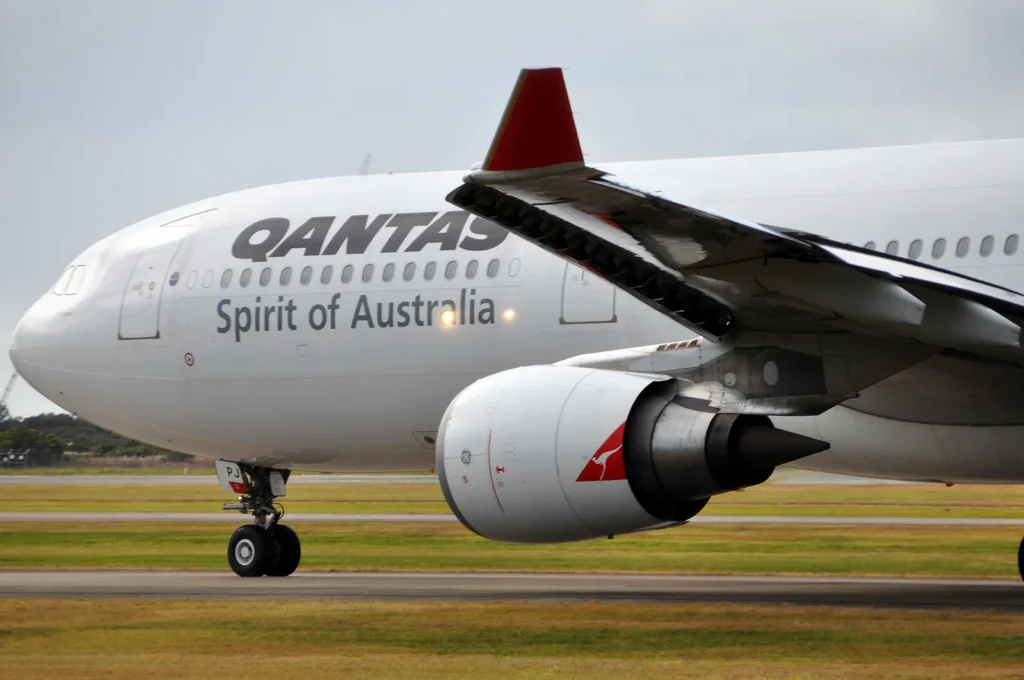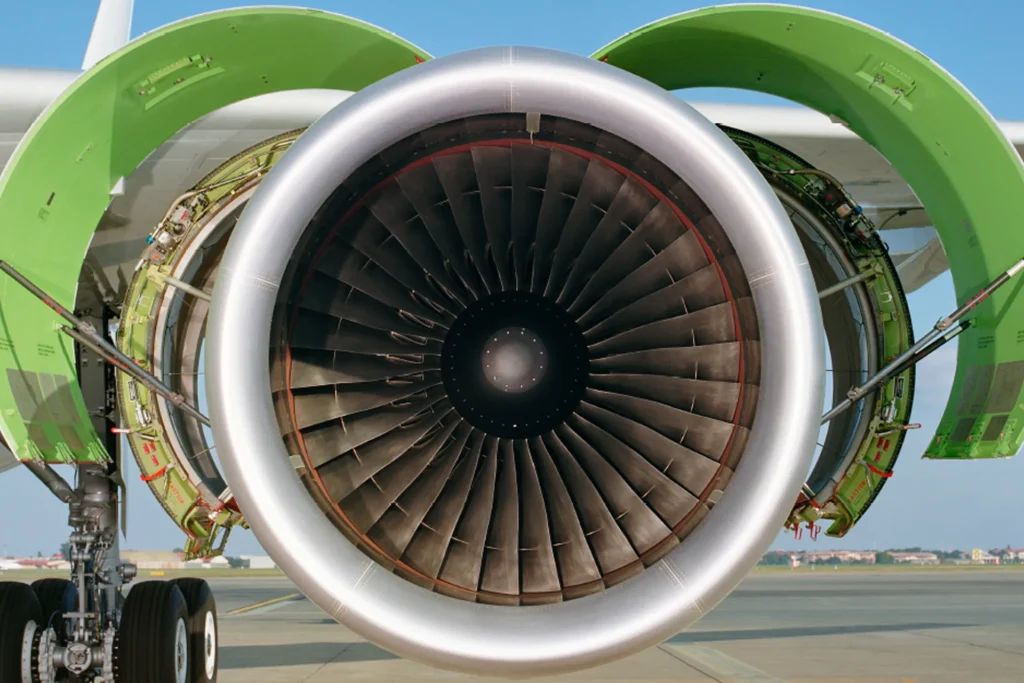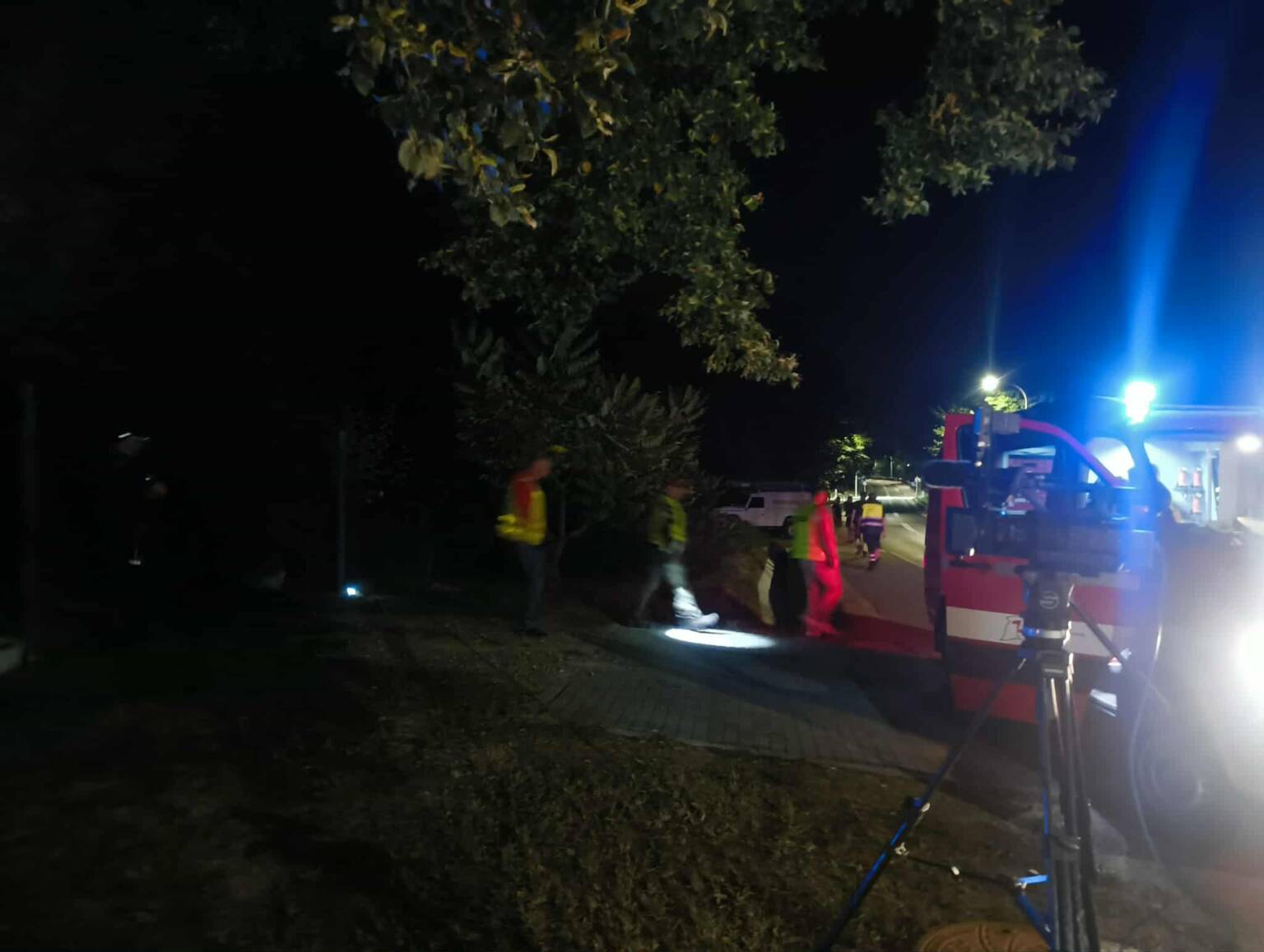
SYDNEY- Qantas (QF) flight from Los Angeles (LAX) to Brisbane (BNE) returned to LAX after a passenger reported sparks from the right engine.
The Airbus A330-200 experienced a compressor stall during climb and landed safely with no injuries. The Australian Transport Safety Bureau (ATSB) investigation is ongoing.
 Photo- Robert Frola | Wikimedia Commons
Photo- Robert Frola | Wikimedia CommonsIncident Details
On December 2024, Qantas (QF) flight QF16, an Airbus A330-200, registration VH-EBQ, departed Los Angeles International Airport (LAX) for Brisbane Airport (BNE). At 34,000 feet, a passenger observed sparks from the right engine.
The flight crew conducted checks and opted to return to LAX, descending to 31,000 feet to reduce engine load.
The intermittent sparks ceased at this altitude, but during the final descent, 3 loud bangs accompanied a right engine compressor stall indication, prompting the crew to operate the engine at idle until landing safely at LAX.
 Photo- ATSB
Photo- ATSBAfter Landing
Post-flight inspection revealed severe engine damage. A missing high-pressure compressor blade, another fractured blade, damaged blade tips, a misaligned variable stator vane, and metal debris in the exhaust.
The aircraft was grounded, and the right engine, a GE Aerospace CF6-80E1, was replaced. The incident, reported by the ATSB, caused no injuries to passengers or crew.
Maintenance Oversights at LAX
The A330’s previous flight before this, into Los Angeles (LAX), had flagged a high N2 vibration advisory. This indicates potential issues with the high-pressure compressor and turbine.
During the turnaround, two Qantas maintenance engineers observed particles in the right engine exhaust but released the aircraft for service under minimum equipment list (MEL) requirements, with the N2 vibration sensor inoperative. This meant the flight crew lacked real-time vibration data during the incident flight. They were also unaware of the exhaust particles noted earlier.
The ATSB is investigating communication failures between LAX maintenance staff and Qantas’ Sydney operations centre. It is focusing on why critical observations were not relayed to the flight crew before departure.
 GE Aerospace CF6 Engine; Photo- GE Aerospace
GE Aerospace CF6 Engine; Photo- GE AerospaceATSB Investigation
The ATSB’s ongoing investigation examines multiple factors: recorded flight data, maintenance procedures, communication logs, and GE Aerospace’s material failure analysis of the engine’s damaged components.
The probe will assess whether the high-pressure compressor blade failure resulted from fatigue, manufacturing defects, or wear exacerbated by prior vibrations. The investigation also scrutinises Qantas’ adherence to safety standards, particularly the troubleshooting process at Los Angeles (LAX) and the MEL’s application.
A final report, expected in 2026, will detail findings and safety recommendations. The ATSB has committed to immediate notifications if critical safety issues emerge, ensuring prompt action by Qantas (QF) and regulators.
The incident echoes past A330 engine issues, such as a 2010 Qantas (QF) A380 event near Singapore (SIN). It underscores the need for robust engine monitoring and maintenance.
 Photo: Cado Photo
Photo: Cado PhotoBroader Aviation Safety
The incident has prompted Qantas (QF) to review its maintenance procedures at Los Angeles (LAX) and other international hubs, with potential updates to MEL protocols for engine sensors.
The airline’s safety record, among the industry’s strongest, faces scrutiny as the ATSB investigates whether systemic issues contributed to the oversight. Qantas (QF) has grounded the aircraft for repairs, and no timeline for its return to service at Brisbane (BNE) has been confirmed.
For the broader aviation sector, the event highlights the risks of operating ageing aircraft like the 20-year-old A330-200 with high-cycle engines. The CF6-80E1’s blade failure raises concerns about component durability, potentially influencing GE Aerospace’s maintenance recommendations.
Stay tuned with us. Further, follow us on social media for the latest updates.
Join us on Telegram Group for the Latest Aviation Updates. Subsequently, follow us on Google News
Qantas Perth to London Flight with 787 Diverted to Maldives
The post Qantas A330 Operated Flight Suffered Compressor Stall:ATSB appeared first on Aviation A2Z.

 4 miesięcy temu
4 miesięcy temu













